FACTSHEET
RESEARCH MASTER’S PROGRAMME HISTORY
Dear students,
Welcome to the Research MA History programme at Utrecht University. This factsheet is intended to help you get acquainted with the MA programme, introduce some of the members of staff you will be working with over the course of your MA, as well as provide information regarding some of the services available to students at Utrecht University. For extensive information about the study programme and administrative procedures, please have a look at our website
As you will soon discover, during your Master’s you have a lot of options to choose from: you can compose your own programme with courses from within and outside the Utrecht University History Department; you can study abroad, do an internship and write a thesis in your field of interest. In the end, each student will have tailor-made his or her own RMA programme. We will be there to advise and guide you along the way, starting with an individual intake meeting before you begin the programme to celebrating with you on the day you graduate – and hopefully keeping in touch as you embark on your further career
For questions about the curriculum that may come up throughout the year – from individual courses to internships, study abroad, thesis and graduation – make sure you bookmark our programme’s website
We hope you enjoy your stay in Utrecht!
Best wishes on behalf of the staff of the RMA History programme,
Dr Katharine Frederick Programme Coordinator RMA History

Dr Bastiaan Bouwman
Dr Geraldien von Frijtag Drabbe Kunzel
Dr Jochen
Hung
Core Coordination Team
D R K ATE F REDERICK CHECK OUT OUR WEBSITE FOR MORE INFORMATION
DO YOU WANT TO PARTICIPATE?
Curriculum Committee
The Curriculum Committee consists of students and staff members who jointly discuss and assess the quality of the education in the Research Master’s programme. Every year, the committee is looking for new student members. If you are interested in becoming a member, or if you want to contact the committee about the standard of education, , please contact the chair of the committee, dr. Willemijn Ruberg: (w.g.ruberg@uu.nl).
Social Committee
At Utrecht, we often like to continue our discussions outside of the classroom. We go on excursions, meet in a local café for drinks or get together for an annual barbecue. The Social Committee organizes these informal events and helps maintain our RMA History community spirit The committee is composed of firstand second-year students and meets regularly with the programme coordinator to foster communication between staff and students. If you are interested in participating, please get in touch with the programme coordinator at rmahistory@uu.nl
Humanities Graduate School Conference
The Humanities Graduate School Conference is a conference by and for PhDs and Research Master’s students at the Faculty of Humanities. It aims to provide an interdisciplinary conference to strengthen the academic community within the Graduate School. Furthermore, the conference allows students and PhDs to obtain valuable experience in presenting and discussing their own work.
If you are interested in co-organizing this year’s edition of the Humanities Graduate School Conference, send an email to the Graduate School of Humanities: GSHumanities@uu.nl
RMA Conference grants
Research Master’s students are encouraged to participate in international conferences. To stimulate this participation, the Graduate School of Humanities awards several Conference Grants over the year. Students who wish to be considered for such a grant are asked to submit a proposal.
Deadlines for applications are usually on 1 May and 1 December. Please contact the Graduate School of Humanities (GSHumanities@uu.nl) for more information.
CORE TEAM OF LECTURERS
■ ■ ■
DR. KATE FREDERICK is the Programme Coordinator .
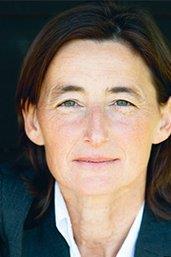

Expertise: economic and social history, global history, labor history, colonialism in Africa.
■ ■ ■
DR. BASTIAAN BOUWMAN is Core Lecturer (Thesis)

Expertise: international history, history of human rights, humanitarianism, and refugees, NGO’s, transnational history, Cold War history
■ ■ ■
DR. JOCHEN HUNG is Core Lecturer (internships)
Expertise: modern German history, interwar history, microhistory, popular culture, cultural history of politics, (history of) digital culture
■ ■ ■ D R F RANCESCA H OOFT is internship supervisor
Expertise: conflict analysis, the use of violence by state and nonstate actors, identity and agency, transitional justice, and memory studies
■ ■ ■
DR. GERALDIEN VON FRIJTAG is Core Lecturer (1st year)
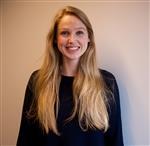
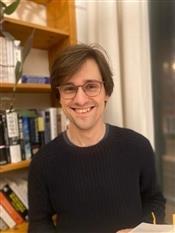
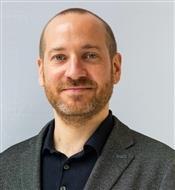
Expertise: Holocaust and genocide studies, contemporary European history, WWI and WWII, totalitarianism and fascism
■ ■ ■ D R D MITRI LEVITIN is internship supervisor
Expertise: history of knowledge, history of science, history of medicine, history of the humanities
Expertise: political history, history of democracy and the welfare state, history and memory of large-scale violence, history of political ideologies
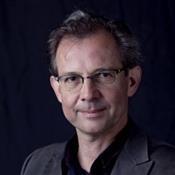
Expertise: digital humanities, conceptual history, history of science, popular culture

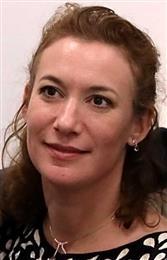
Expertise: business history, political history, digital humanities, political science

Expertise: economic and social history, esp. the history of labour relations, notably women
children
work
Expertise: quantitative research methods, social-economic history, history of public services
 ■ ■ ■
P ROF D R I DO DE H AAN
■ ■ ■
PROF. DR. ELI SE VAN N EDERVEEN - MEERKERK
’s and
’s
■ ■ ■ D R PIM HUIJNEN
■ ■ ■ DR. AUKE RIJPMA
■ ■ ■ EWOUT HASKEN, MPhil
■ ■ ■
P ROF D R I DO DE H AAN
■ ■ ■
PROF. DR. ELI SE VAN N EDERVEEN - MEERKERK
’s and
’s
■ ■ ■ D R PIM HUIJNEN
■ ■ ■ DR. AUKE RIJPMA
■ ■ ■ EWOUT HASKEN, MPhil
STUDY ADVISORS
Facing issues with your studies? The study advisors are there to help and support you to successfully complete your degree. They can act as confidential counsellors, advise on issues regarding illness and special circumstances and, together with you, look at the possibility to cope with the studies while dealing with disabilities or chronic illnesses. They can also help with specific arrangements and procedures, such as complaints, objections and appeals. You can find more information on the university website, at: https://students.uu.nl/en/hum/history-ma/contact/study-advisor. Click on the name of the study advisor to see who to contact if you have questions about your programme
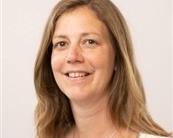
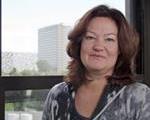
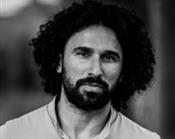
■ ■ ■
■ ■ ■
■ ■ ■
E VELIEN H AZEWINKEL
M IRJAM VAN D EUTEKOM
M AJED Z AIN
THIS PROGRAMME
The Research MA History programme offers you research-based training in history as an academic discipline. We teach you how to do research, and we challenge you to develop your own ideas on topics of your choice. Our History Department offers a broad range of historical expertise in political history, cultural history, history of international relations and economic and social history. We address major themes such as inequality, citizenship, political upheavals, democratisation, security and expertise in early modern and modern societies. Studying new fields such as environmental history, transatlantic history, history of knowledge or digital history, we encourage our students to apply a variety of methods and theories.
EDUCATIONAL PHILOSOPHY
The programme’s courses are taught in small groups by first-rate instructors. You will learn advanced research skills whilst developing historical expertise in your specific areas of interest. We will also challenge you to connect your work to ongoing scholarly debates and to reflect on current affairs.
To develop your skills as an independent researcher, you will have the opportunity to pursue a research internship with a variety of professional organisations. You can also choose to spend one semester abroad at a major research university. After successful completion of the programme, you will be fully qualified to work as a researcher for public and private organisations or to apply for PhD positions in your field of interest.
Below you will find a programme schedule. The study programme comprises both mandatory courses (light grey in the schedule) and electives (yellow in the schedule). For a more detailed description of the specific courses on offer, please visit the section on course contents on our website
COURSE PLANNER: You will find more information on this programme’s courses in the Course Planner:
Course Planner RMA History

LEARNING
OBJECTI VES
After graduating from the Master in History, you will have:
✓ profound knowledge of and insight into the field of History; ✓ obtained the academic skills to independently identify, formulate, analyse and suggest possible solutions to problems in the field of History; ✓ obtained the academic skills to conduct research in the field of History and to report on it in a manner that meets the general standards of the discipline;
✓ possession of professional and academic skills ✓ the ability to apply knowledge and understanding in a way that demonstrates a professional approach to your work or profession; ✓ the ability to communicate conclusions, as well as the underlying knowledge, grounds and considerations, to an audience composed of specialists or nonspecialists
Compulsory Free Choice Fundamentals (5) Research Design (5) Research Competencies (5) Thesis lab (no credits) RMA Thesis (30EC) Study Abroad orReseach Internship (30EC) Year1 Year2 Block 1 Block 2 Block 3 Block 4 Research Seminar(15) Electives (20) Methods (10)
THIS MASTER ’S PROGRAMME AND OUR SOCIETY
The Research Master’s in History is designed to train you to become an independent researcher in a specialty of your choice. We will help you develop your creative and independent thinking skills, but we will also teach you the tricks of the trade: how to ask the right questions, develop a theoretical framework, design empirical strategies, and report your findings. Our staff will encourage you to participate in collaborative work and expand your academic and professional network.
Upon completion of the programme, you will be fully qualified to apply for PhD positions. Many of our students aspire to become academic researchers, but you will discover that there is a much broader demand for excellent research skills from non-academic public and private organisations. We encourage our students to explore these job opportunities outside academia. Read more about possible career prospects
In addition, Career Services offers workshops to all students, for which you can register on their website These include sessions on using LinkedIn, writing a c.v. and cover letter, transferable skills, preparing for a job/internship interview and working effectively.
IMPORTANT FOR HUMANITIES STUDENTS
New students students.uu.nl/hum-new
Practical information for new students at the Humanities faculty.
Academic calendar students.uu.nl/hum-calendar
Information about days off, course registrations and change-of-enrolment days.
UU online

Information about our online systems and how to log in: students.uu.nl/hum-online
In need of a manual? IT manuals: https://manuals.uu.nl/en
REGISTRATION, PROCEDURES, INTERNSHIP INFO
Student Information Desk Humanities students.uu.nl/hum-contact
Programme related matters, such as
• course registration
• course schedules
• study results & study progress (Osiris)
• graduation
Student Services students.uu.nl/en/contact/student-services
Studying at Utrecht University in general:
• registration as a UU student
• tuition fees
• elite athletes
• disability or chronic illness
Internship coordinator students.uu.nl/hum-internshipcoordinator


Information about:
• guidelines and procedures
• internship placements
QUESTIONS ABOUT ENTERING THE JOB MARKET
Career Services students.uu.nl/hum-careerservices
Advice on getting a job after graduation through workshops, CV check-up, and coaching. Your programme coordinator will inform you about programme-specific events.
NEED EXTRA HELP?
Study advisor: students.uu.nl/hum-studyadvisor






Student psychologist: students.uu.nl/psychologist
Workshops: Skills Lab: students.uu.nl/en-skillslab
THINKING OF GOING ABROAD ?
International office Humanities: students.uu.nl/hum-io
OTHER FACILITIES
University Library: students.uu.nl/hum-library
Olympos sports centre: olympos.nl/en-us/home.aspx
Parnassos cultural centre: uu.nl/en/parnassos
FACT! You can find your grades, student card and timetable in the MyUU portal and the MyUU app: students.uu.nl/en/myuu and students.uu.nl/en/ myuu-app
FACT! In the second semester, you will have to register in Osiris for courses you wish to attend. If you want to switch courses, you can do so on the change-ofenrolment days before the start of the relevant block.
FACT! Deadlines are always listed in the course syllabus, which your lecturer will provide approximately 2 weeks prior to the course’s ’start.
FACT! If you need more information about specific aspects of your programme, e.g. internships or thesis, please see the Curriculum page on the programme website via students.uu.nl/hum.
FACT! Check students. uu.nl/hum-studentlife for information about living, jobs, sports and leisure in Utrecht!
© June 2023. Utrecht University, Faculty of Humanities. Every effort has been made to ensure that the information presented in this factsheet is correct and up to date. Utrecht University cannot be held liable for any false, inaccurate, or incomplete information presented herein.











 ■ ■ ■
P ROF D R I DO DE H AAN
■ ■ ■
PROF. DR. ELI SE VAN N EDERVEEN - MEERKERK
’s and
’s
■ ■ ■ D R PIM HUIJNEN
■ ■ ■ DR. AUKE RIJPMA
■ ■ ■ EWOUT HASKEN, MPhil
■ ■ ■
P ROF D R I DO DE H AAN
■ ■ ■
PROF. DR. ELI SE VAN N EDERVEEN - MEERKERK
’s and
’s
■ ■ ■ D R PIM HUIJNEN
■ ■ ■ DR. AUKE RIJPMA
■ ■ ■ EWOUT HASKEN, MPhil





